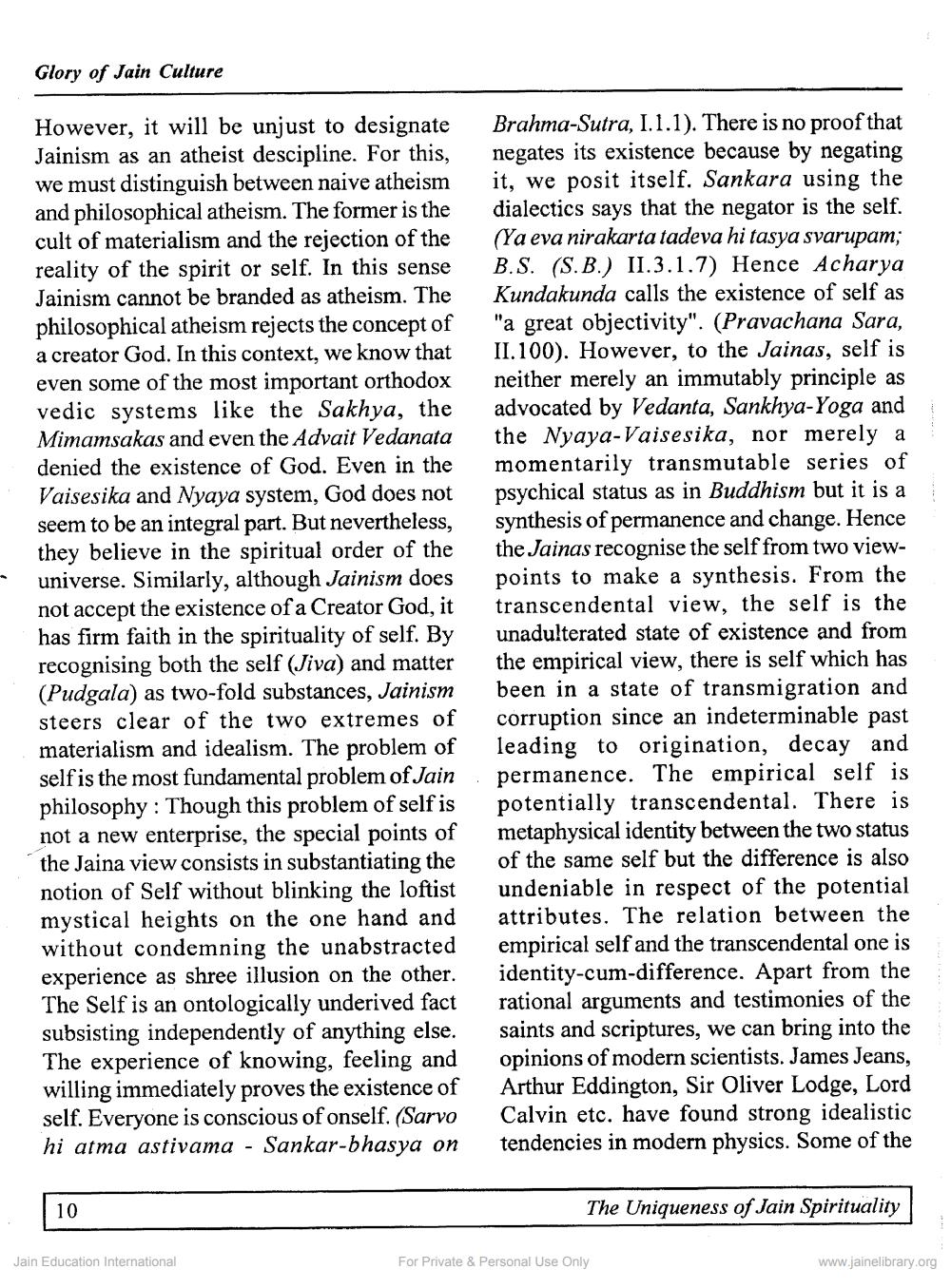Book Title: Uniqueness of jain Spirituality Author(s): Ramjee Singh Publisher: Z_Sumanmuni_Padmamaharshi_Granth_012027.pdf View full book textPage 2
________________ Glory of Jain Culture However, it will be unjust to designate Jainism as an atheist descipline. For this, we must distinguish between naive atheism and philosophical atheism. The former is the cult of materialism and the rejection of the reality of the spirit or self. In this sense Jainism cannot be branded as atheism. The philosophical atheism rejects the concept of a creator God. In this context, we know that even some of the most important orthodox vedic systems like the Sakhya, the Mimamsakas and even the Advait Vedanata denied the existence of God. Even in the Vaisesika and Nyaya system, God does not seem to be an integral part. But nevertheless, they believe in the spiritual order of the universe. Similarly, although Jainism does not accept the existence of a Creator God, it has firm faith in the spirituality of self. By recognising both the self (Jiva) and matter (Pudgala) as two-fold substances, Jainism steers clear of the two extremes of materialism and idealism. The problem of self is the most fundamental problem of Jain philosophy : Though this problem of self is not a new enterprise, the special points of the Jaina view consists in substantiating the notion of Self without blinking the loftist mystical heights on the one hand and without condemning the unabstracted experience as shree illusion on the other. The Self is an ontologically underived fact subsisting independently of anything else. The experience of knowing, feeling and willing immediately proves the existence of self. Everyone is conscious of onself. (Sarvo hi atma astivama - Sankar-bhasya on Brahma-Sutra, I.1.1). There is no proof that negates its existence because by negating it, we posit itself. Sankara using the dialectics says that the negator is the self. (Ya eva nirakarta tadeva hi tasya svarupam; B.S. (S.B.) II.3.1.7) Hence Acharya Kundakunda calls the existence of self as "a great objectivity". (Pravachana Sara, II.100). However, to the Jainas, self is neither merely an immutably principle as advocated by Vedanta, Sankhya-Yoga and the Nyaya-Vaisesika, nor merely a momentarily transmutable series of psychical status as in Buddhism but it is a synthesis of permanence and change. Hence the Jainas recognise the self from two viewpoints to make a synthesis. From the transcendental view, the self is the unadulterated state of existence and from the empirical view, there is self which has been in a state of transmigration and corruption since an indeterminable past leading to origination, decay and permanence. The empirical self is potentially transcendental. There is metaphysical identity between the two status of the same self but the difference is also undeniable in respect of the potential attributes. The relation between the empirical self and the transcendental one is identity-cum-difference. Apart from the rational arguments and testimonies of the saints and scriptures, we can bring into the opinions of modern scientists. James Jeans, Arthur Eddington, Sir Oliver Lodge, Lord Calvin etc. have found strong idealistic tendencies in modern physics. Some of the 10 The Uniqueness of Jain Spirituality Jain Education International For Private & Personal Use Only www.jainelibrary.orgPage Navigation
1 2 3 4 5 6 7 8
